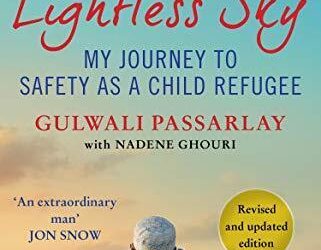TGIUK shares the experience of developing and implementing a story telling competition, revealing the highs and lows and the ultimate satisfaction in creating an amazing event.
In this short blog, we would like to tell you a little more about what the ups and downs and what it takes to make something like this work.
First of all, I think it’s a bit like being out at sea. Sometimes, you ride a big wave and its really thrilling. Our biggest high is when somebody posts an entry. We are constantly astounded at the quality of the entries coming in and we worry a lot about how the judges are going to decide which is the winner.
Our other highs come with the generosity we receive from organisations and friends who are helping publicise the competition and make it work. A shoutout to them here:
Migrant Voice have helped hugely as has Marshalls Elearning by hosting blogs together with lots of tweets
To our complete surprise, we became MarketingKind’s cause of the month. This meant that we met up, through them, with 8 marketing professionals to look at how we can market the competition better. We benefitted hugely from their insights and their generosity.
Lord Dubs, a judge, in the Under 18s put out a brilliant tweet about the competition to all his followers, saying he was hoping to uncover the next Onjali Rauf. We hope so too and we think its entirely possible.
TimePeace have supported it
The National Centre for Writing tweeted the competition
We are the grateful recipients of the continued generosity of LitCamb.
Friends have made sure the schools they work in know all about it
We reached out to Voicemags and they published an article about the competition
Luckily, nature has a way of making you forget the lows but its mainly the question of will we get enough entries? And how can we not? This much generosity is coming our way because these organisations and people want to encourage and support the authors and welcome people migrating to the UK. They believe, like we do, in an inclusive society and that the best way of including people is to listen to their story.







